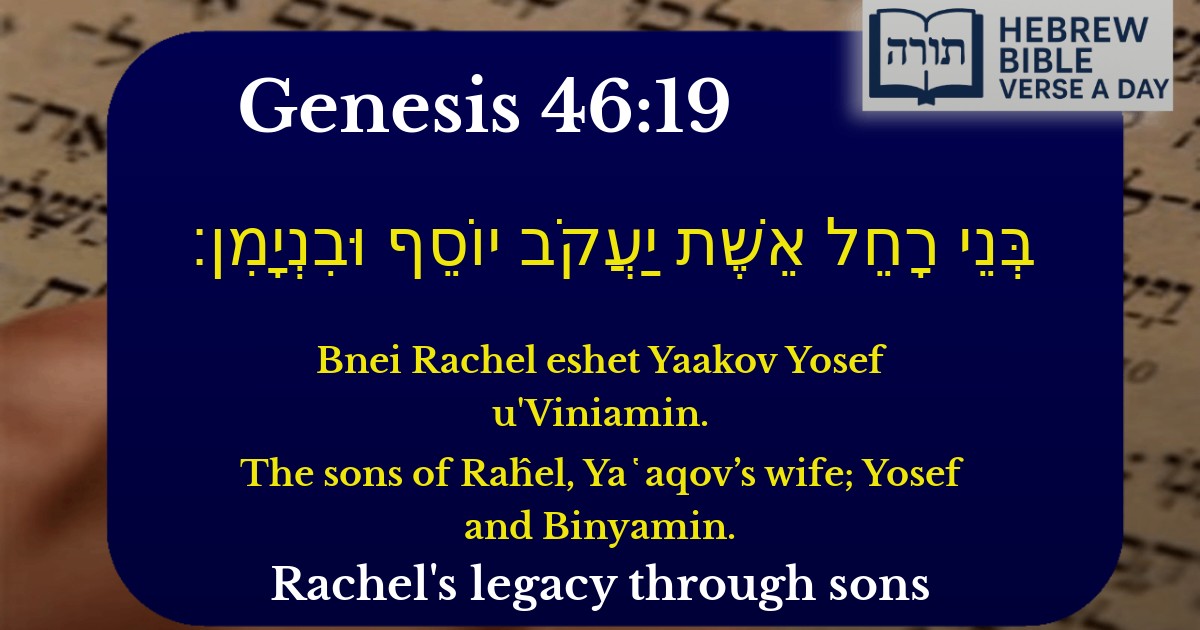Join Our Newsletter To Be Informed When New Videos Are Posted
Join the thousands of fellow Studends who rely on our videos to learn how to read the bible in Hebrew for free!
Hebrew Text
בְּנֵי רָחֵל אֵשֶׁת יַעֲקֹב יוֹסֵף וּבִנְיָמִן׃
English Translation
The sons of Raĥel, Ya῾aqov’s wife; Yosef and Binyamin.
Transliteration
Bnei Rachel eshet Yaakov Yosef u'Viniamin.
Hebrew Leining Text
בְּנֵ֤י רָחֵל֙ אֵ֣שֶׁת יַעֲקֹ֔ב יוֹסֵ֖ף וּבִנְיָמִֽן׃
בְּנֵ֤י רָחֵל֙ אֵ֣שֶׁת יַעֲקֹ֔ב יוֹסֵ֖ף וּבִנְיָמִֽן׃
🎵 Listen to leining
Parasha Commentary
📚 Talmud Citations
This verse is not quoted in the Talmud.


The Sons of Rachel
The verse states: "בְּנֵי רָחֵל אֵשֶׁת יַעֲקֹב יוֹסֵף וּבִנְיָמִן" ("The sons of Rachel, Yaakov’s wife: Yosef and Binyamin"). This verse enumerates Rachel’s two sons, emphasizing her unique status as Yaakov’s primary wife (Rashi on Bereishit 46:19). Rachel is referred to specifically as "Yaakov’s wife" to highlight her cherished position, as Yaakov had initially intended to marry only her (Bereishit Rabbah 70:15).
Yosef and Binyamin: Rachel’s Legacy
Rachel bore only two sons, yet they became foundational tribes of Israel:
Rachel’s Distinction Among the Imahot
Unlike Leah, who bore six sons, Rachel’s two sons held unique roles: